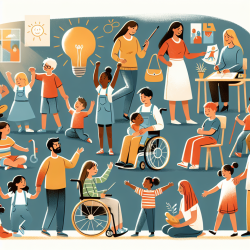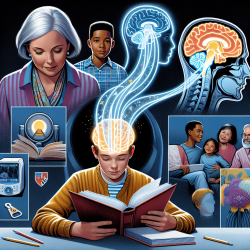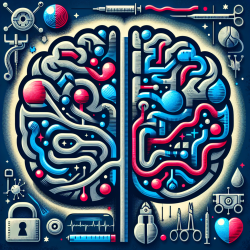In a significant stride towards enhancing the educational experiences and outcomes for children with disabilities, the Department of Education has unveiled an opportunity for the development of Model Demonstration Projects aimed at fostering equitable family engagement, particularly with underserved families. This initiative, under the Assistance Listing Number 84.326M, marks a critical effort to bridge gaps and ensure that all children, irrespective of their backgrounds, have access to quality education and the support they need to thrive academically and socially.
Announced on February 14, 2024, this initiative seeks to promote academic achievement and improve results for children with disabilities by supporting model demonstration projects, disseminating useful information, and implementing activities backed by scientifically based research. The focus on underserved families—those often marginalized due to economic, cultural, or linguistic barriers—underscores a commitment to inclusivity and equity in education.
Understanding the Priority
The core of this initiative lies in its priority: Model Demonstration Projects to Develop Equitable Family Engagement with Underserved Families of Children with Disabilities. The essence of these projects is to create and sustain school-wide policies, practices, and strategies that engage underserved families as partners and leaders in fostering more equitable and inclusive schools. This aligns with the broader goals of promoting equity in student access to educational resources and opportunities and meeting students' social, emotional, and academic needs.
Research has consistently shown the positive impact of family engagement on children's educational outcomes. Engaging families, especially those underserved, in meaningful ways that respect their strengths, needs, cultures, and experiences is crucial. However, challenges remain in effectively supporting family engagement practices, with many schools inadvertently excluding or disempowering underserved families. This initiative seeks to address these challenges by fostering sustainable, equitable collaborations between schools, families, and communities.
Key Components of the Model Demonstration Projects
- Implement evidence-based practices that systemically involve underserved families of children with disabilities as partners and leaders.
- Address the infrastructure and ongoing supports needed for the development, implementation, and evaluation of sustainable, school-wide family engagement policies and practices.
- Demonstrate methods for identifying evidence-based strategies that build the capacity of school personnel and underserved families to develop and implement sustainable, equitable, and inclusive systemic change.
- Assess how models can increase the engagement of underserved families and improve academic, social, emotional, and behavioral development and outcomes for underserved children with disabilities.
Application and Funding Details
Applications for this transformative initiative are available from February 14, 2024, with a deadline for transmittal of applications on April 24, 2024. The Department of Education aims to fund four cooperative agreements, contingent upon the availability of funds and the quality of applications. Each project may receive between $300,000 to $400,000, with the potential for continuation based on performance.
This initiative represents a pivotal moment in special education and family engagement. By supporting the development of model demonstration projects that prioritize equitable family engagement, the Department of Education is taking a significant step towards ensuring that all children, especially those from underserved backgrounds, receive the support and opportunities they need to succeed.
For schools, educators, and families, this initiative offers a path to collaboratively create more inclusive and responsive educational environments. It challenges the status quo by reimagining how schools engage with families, moving beyond traditional participation to genuine partnership and leadership roles for families, particularly those historically underserved.
As we move forward, it's essential for all stakeholders in the educational community to consider how they can contribute to and benefit from these model demonstration projects. Whether by applying for funding to develop a project, participating in project activities, or disseminating project findings and resources, there are numerous ways to be involved and make a difference in the lives of children with disabilities and their families.
For more information on this groundbreaking initiative and how to apply, please follow this link.










